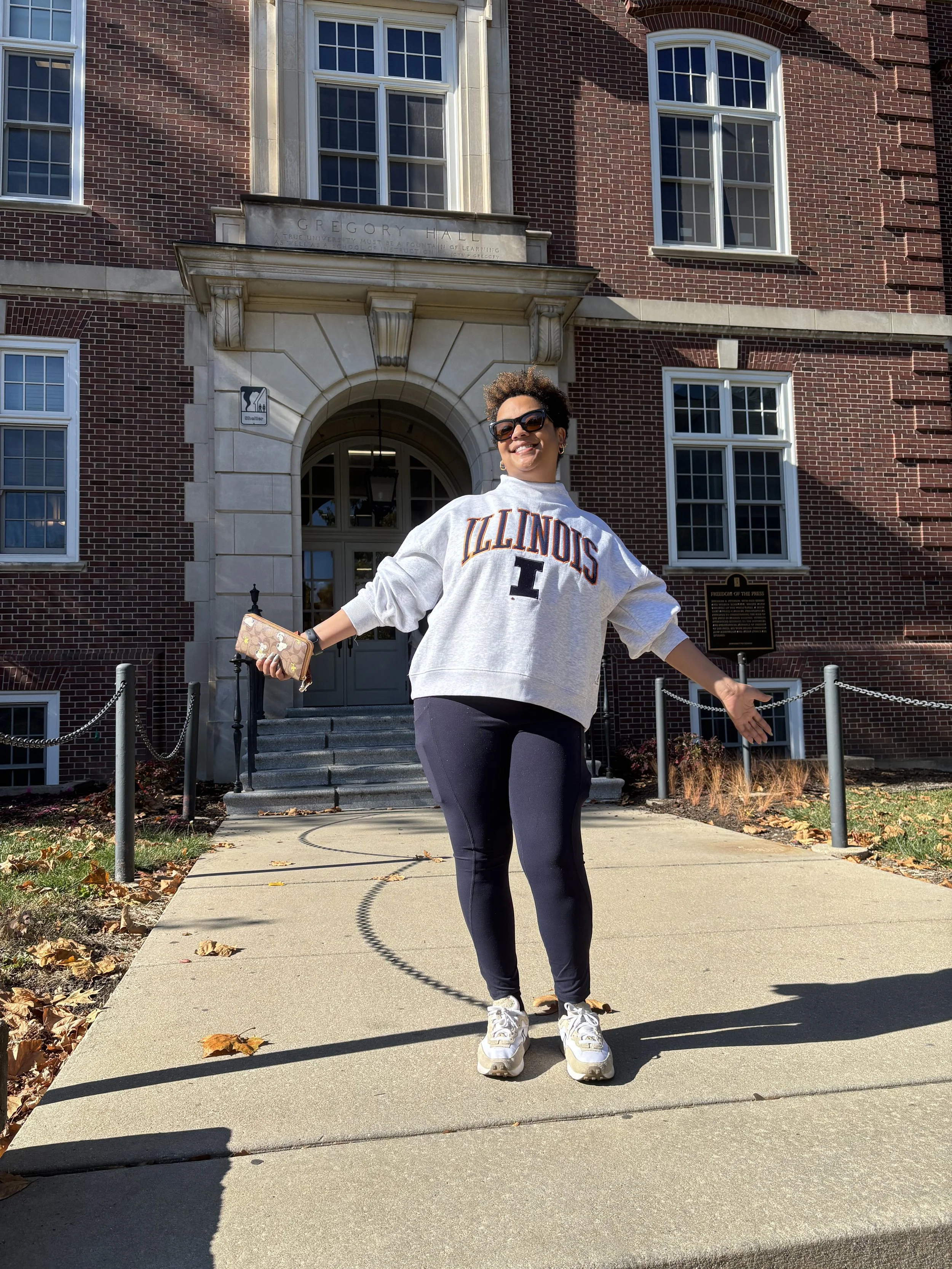In the last couple of weeks, I’ve gotten the opportunity to speak at a couple of dope venues: the 12th Biennial Conference for ASWAD (Association for the Study of the Worldwide African Diaspora) and the Ida B. Wells Lecture at the University of Illinois Urbana-Champaign (sponsored by their department of African American Studies). At ASWAD, I participated in a panel discussion on my mentor, Erik McDuffie’s second book, The Second Battle for Africa. The book calls us to think about how Garveyism spread across space and time, centering how Black women in the US and Africa made sure the revolutionary message of Black freedom shaped Black politics through the 1980s. It is a masterful historical narrative that is both personal and political—such an inspiration as I finally get ready to resubmit my book manuscript (a full revamp!) to a new and interested publisher. Send good vibes and prayers, y’all!
One thing I loved most about McDuffie’s book is his treatment of Louise Little, Malcolm X’s mother. We get to know her more and thus get to Malcolm more, which is a feat for a popular but often misrepresented figure in Black history. Humanizing historical figures like Louise Little is so very important to our job as historians. In the name of “objectivity,” historians often idolize and freeze people of the past which makes them inaccessible to our students and the general public. For instance, Martin Luther King Jr. often gets depicted in black and white, a fallen angel who lived perfectly and precisely. Someone so special that no one else can ever do what he did. But that’s not true. MLK died when he was my age. Killed, martyred. An imperfect person who did his best to spark change, using his talents and community to do so.
I love humanizing historical figures. At my recent talk at U of I (my 3x alma mater), I got really wonderful feedback on my ability to humanize the people I study. Namely, folks got to better know Freddy D, aka Frederick Douglass, through me. I am a Freddy D stan. Yes, he was arguably the most famous African American of the 19th century, the most photographed American of that century, a prolific author and orator who played a major role in bringing about the end of chattel slavery in the US. But he was also an imperfect husband, a man with a killer Afro, a person who fell in love with Haiti at the end of his life, a mentor to younger activists, and a fitness enthusiast who had weights by his bed. Knowing the fullness of Freddy D or Louise Little reminds us that we are the change makers of era, if we want to be. We can grow and evolve and mess up, and still make a difference. People can remember us and sing our name while also critiquing our mistakes and holding us accountable.
It’s a hope I have for us all, and I call my fellow historians to humanize our subjects. They are not stuck in the past, they are with us now and we can learn from them. We must make them accessible, especially now.
